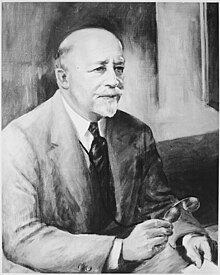Atlanta compromise
Appearance


The Atlanta compromise was an agreement struck in 1895 between Booker T. Washington, president of the Tuskegee Institute, other African-American leaders, and Southern white leaders. The agreement was that Southern blacks would work and submit to white political rule, while Southern whites guaranteed that blacks would receive basic education and due process in law. Blacks would not focus their demands on equality, integration, or justice, and Northern whites would fund black educational charities.
Quotes
[edit]Atlanta Exposition Speech by Booker T. Washington (1895)
[edit]- No race can prosper till it learns that there is as much dignity in tilling a field as in writing a poem. It is at the bottom of life we must begin and not the top. Nor should we permit our grievances to overshadow our opportunities.
- The wisest among my race understand that the agitation of questions of social equality is the extremest folly, and that progress in the enjoyment of all the privileges that will come to us must be the result of severe and constant struggle, rather than of artificial forcing. No race that has anything to contribute to the markets of the world is long in any degree ostracized.
Contemporary reactions
[edit]- So thoroughly did he learn the speech and thought of triumphal commercialism, and the ideals of material prosperity, that the picture of a lone black boy poring over a French grammar amid the weeds and dirt of a neglected home soon seemed to him the acme of absurdities. One wonders what Socrates and St. Francis of Assisi would say to this.
- W. E. B. Du Bois, The Souls of Black Folk (1903), p. 81
- If the professor means by the term "my race" the colored race of this country, some of them are certainly wise enough to understand the philosophy and genius of national sociology enough to know that social equality carries with it civil equality, political equality, financial equality, judicial equality, business equality, and wherever social equality is denied by legislative enactments and judicial decrees, the sequel must be discrimination, proscription, injustice and degradation.
- Henry McNeal Turner, "Response to the Atlanta Exposition Address," in Voice of the Missions, October 1895
- With all due respect to Prof. Washington personally, for we do respect him personally, he will have to live a long time to undo the harm he has done to our race. His remarks on social equality, which is nothing more than civil equality, will be quoted by newspapers, magazines, periodicals, legislatures, congressmen, lawyers, judges and all grades of whites to prove that the Negro race is satisfied with being degraded, not that the Professor meant it, but such will be the construction given it by our civil and political enemies.
- Henry McNeal Turner, "Response to the Atlanta Exposition Address," in Voice of the Missions, October 1895

